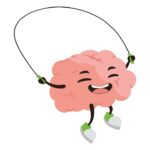Tips and Tricks for Fighting Depression
Depression is a complex mental health condition that can significantly impact an individual’s quality of life. While it’s essential to seek professional help when dealing with depression, there are several practical tips and tricks that can complement therapy and medication. Here are some strategies that may help alleviate symptoms of depression and foster a more positive outlook.
1. Establish a Routine
Creating and maintaining a daily routine can provide structure and a sense of normalcy. Start with small, achievable goals, such as waking up at the same time each day or setting aside time for breakfast. A consistent schedule can help reduce feelings of chaos and uncertainty.
2. Stay Active
Physical activity has been shown to have a positive effect on mood. Exercise releases endorphins, the body’s natural mood lifters. Aim for at least 30 minutes of moderate exercise most days of the week. This could include walking, jogging, yoga, or even dancing. Choose an activity you enjoy to make it easier to stick with it.
3. Connect with Others
Social isolation can worsen feelings of depression. Reach out to friends, family, or support groups. Connecting with others can provide emotional support and reduce feelings of loneliness. If face-to-face interaction feels overwhelming, consider online support groups or virtual meetups.
4. Practice Mindfulness and Meditation
Mindfulness and meditation can help individuals manage stress and anxiety. Practicing mindfulness involves focusing on the present moment without judgment. This can help break the cycle of negative thoughts. Start with just a few minutes a day and gradually increase the duration.
5. Limit Alcohol and Substance Use
While it may be tempting to use alcohol or drugs as a way to cope with depression, these substances can exacerbate symptoms and create additional problems. Limiting or avoiding them can improve mood and overall mental health.
6. Get Adequate Sleep
Sleep is crucial for mental health. Poor sleep can worsen depressive symptoms. Aim for 7-9 hours of quality sleep each night. Establish a bedtime routine, create a comfortable sleep environment, and limit screen time before bed to improve sleep quality.
7. Eat a Balanced Diet
Nutrition plays a vital role in mental health. A diet rich in fruits, vegetables, whole grains, and lean proteins can positively affect mood. Certain nutrients, such as omega-3 fatty acids, vitamins D and B, and minerals like magnesium, have been linked to better mental health.
8. Engage in Creative Activities
Creative outlets such as art, music, or writing can be therapeutic and provide a means of expression. Engaging in creative activities can help individuals process their emotions and provide a sense of accomplishment.
9. Set Small Goals
When feeling overwhelmed, breaking tasks into smaller, manageable goals can make them feel more achievable. Celebrate small victories to build momentum and motivation.
10. Seek Professional Help
Lastly, don’t hesitate to reach out to a mental health professional. Therapy, counseling, or medication can be essential for managing depression. There is no shame in seeking help; it’s a brave step towards recovery.
Conclusion
Fighting depression is a personal journey, and what works for one person may not work for another. It’s essential to be patient and compassionate with oneself during this process. By incorporating some of these tips and tricks into daily life, individuals can take proactive steps toward managing their depression and improving their overall well-being. Remember, you’re not alone, and support is available.


